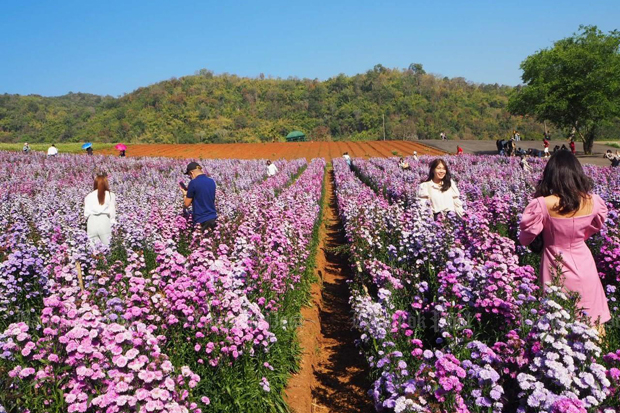
Thai domestic tourism is expected to grow by 162% to 188 million trips and generate 720 billion baht this year, despite rising inflation and sluggish purchasing power, according to ttb analytics, the research arm of TMBThanachart Bank.
The growth will be mainly driven by the further easing of Covid-19 controls from July, said the firm.
All 77 provinces nationwide will be designated as "green" Covid-19 surveillance zones, allowing business operators to fully operate without restrictions, while the cancellation of Thailand Pass from next month is expected to improve tourism sentiment.
According to the analysis, even though Thai tourists remain concerned about surging energy prices, there is strong pent-up demand.
Those who want to travel are expected to opt for secondary destinations more so than usual to avoid crowded places and maintain social distancing practices.
The uniqueness of local experiences, along with lower costs, is an advantage for those second-tier cities.
Another supportive measure is the fourth phase of the hotel subsidy scheme "We Travel Together" that was extended to October with an additional 1.5 million rooms, as well as a new project called "State workation around Thailand", which will grant each civil servant two additional holidays between July and December.
Total domestic tourism revenue this year is expected to reach 720 billion baht, an increase of 228%, according to the study.
The first four months of this year saw the number of trips grow by 87.6%, with revenue of around 220 billion baht, a year-on-year increase of 82.9%.
However, provinces that are heavily dependent on foreign tourists, particularly from China and Russia, were still impacted in the first four months as international air traffic remained 10-20% below pre-pandemic levels.
As a result, there were only 12 provinces, or 15% of the total, that saw a significant improvement both in terms of tourist numbers and revenue.
The second half of this year might see accelerating inflation take a toll on domestic consumption and tourism, as commodity prices are likely to surge higher than in the first six months.
With more than 70% of local tourists travelling by car, surging fuel prices have meant the cost of filling up a vehicle has increased by at least 10%.
